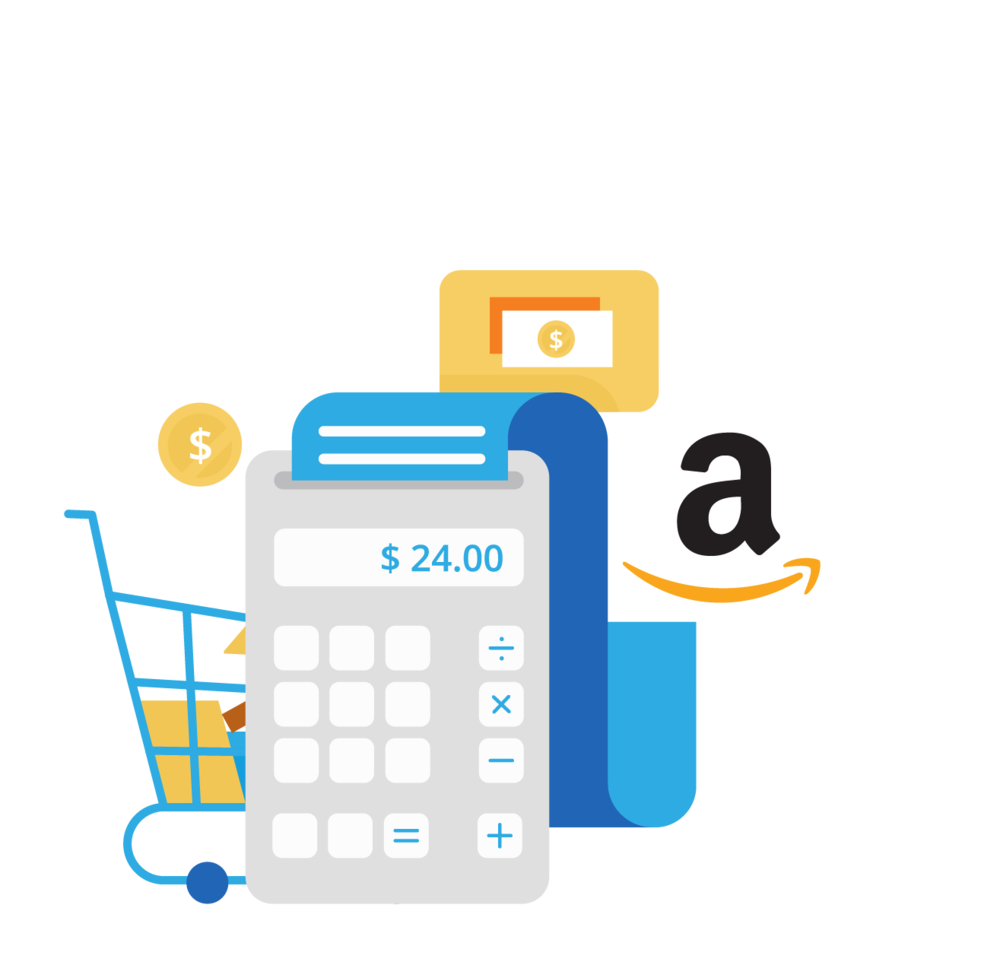How to Find an Ecommerce Accountant

Wondering if you should hire an ecommerce accountant? Or, looking for a way to find the right one?
You’ve come to the right place!
In this article, we’ll walk you through:
- Signs it’s time to work with an accountant at your ecommerce business
- Why working with a specialized ecommerce accountant is important
- What to look for and what to ask when evaluating an ecommerce accountant
- Whether or not it’s important to find an ecommerce accountant near you
- How to find an expert ecommerce accountant
- How to ensure your investment in an ecommerce accountant is worthwhile
…and more!
We’ve also asked A2X’s Accounting Partners for tips on how you can get the most out of your investment when working with a specialized ecommerce accountant. Read on to see what they had to say!
Ready to find an ecommerce accountant or bookkeeper right now? Check out the A2X Partner Directory – enter some basic information about your business, and we’ll match you with an ecommerce accountant/bookkeeper who’s the right fit for your needs!
Table of Contents
Find an ecommerce accountant
The A2X Directory is a global network of expert ecommerce accountants ready to help businesses like yours.
Take me there
Signs that it’s time to hire an accountant for your ecommerce store
When it comes to deciding when to hire an accountant for your business – or, if you already work with a generalist accountant but think you might need a specialist ecommerce accountant – several factors come into play.
Tracey Newman, Product Manager at A2X, and formerly of Bean Ninjas and CloudCounting, advises that the tipping point for hiring an ecommerce accountant is related to your ecommerce business’s complexity:
Deciding whether or not to work with an accountant is less about order volume or the amount of transactions you process.
It’s more to do with how many sales channels you’re using (Shopify, Amazon, direct website, etc.), how many geographic locations you are selling to (as this impacts sales tax and taxation compliance filings), and the third-party authorities you will need to prepare financials for (shareholders, capital providers, sales tax authorities, taxation authorities, audit requirements).
As a business moves from small to large, their compliance and financial statement requirements become increasingly complex. It is difficult for generalist accountants who do not work with ecommerce systems to understand and service these requirements.
Every business is different, but here are a few general signs that your business complexity increasing, and it’s likely a good time to start looking for an expert ecommerce accountant:
You want to sell on multiple sales channels (or you already do)
Selling on multiple sales channels will bring more transaction types, more refunds, more payment processing systems… and more complexity and more bookkeeping work. An expert ecommerce accountant will understand how to manage the finances for your business, even when sales are happening across multiple channels.
You want to sell in multiple tax jurisdictions (or you already do)
If you’re a) registered for sales tax/VAT in any region where you sell, and/or b) approaching tax/VAT thresholds in any region or have nexus in any state in the US, then you usually need to collect, remit, and report on tax/VAT in that region. An expert ecommerce accountant will help you understand where, when, and how much tax you should be collecting and remitting.
You’re seeking a loan or investment
Lenders and investors will be interested in seeing a perfect Profit and Loss and Balance Sheet, and that you’re practicing proper accrual accounting. If you’re inexperienced with bookkeeping, you might miscategorize something, use the cash accounting method, or unwittingly make a mistake. An ecommerce accountant who works with businesses similar to yours can help ensure your financials are investor-ready.
You’re struggling with your accounting software
Purchasing accounting software, such as QuickBooks Online or Xero, is a great way to save time on accounting and bookkeeping. However, onboarding yourself on how to use it and setting it up correctly can take time and expertise – which is where a specialized accountant can come in and help.
You’ve been doing the books yourself, but can’t get payouts to balance
A common mistake that ecommerce sellers who are doing their own bookkeeping will make is recording their entire payout as “income” or “sales” – when actually, it’s a combination of sales, fees, refunds, and other transactions.
An ecommerce accountant can help you use tools like A2X to identify the transactions that make up a payout, and correctly code them to your Chart of Accounts.
Why use specialized accountants for ecommerce?
Not all accountants can work with every type of business. In fact, many accountants choose to specialize and work to serve a specific industry niche.
Working with an accountant or bookkeeper who specializes in working with ecommerce businesses is a great idea because they are aware of the complexities that ecommerce businesses experience and they understand how to manage them.
For example: An accountant who works with Shopify merchants will understand how to reconcile payouts from different payment gateways that you may have set up on your store.
You’re likely reading this blog post because you’re trying to understand if hiring an ecommerce accountant is a good investment for your business.
If you’re considering an accountant who has had very few ecommerce clients – and indicates they aren’t particularly interested in learning how to account for your business correctly – they probably won’t be able to give you the best support and advice. That includes when it comes to minimizing your tax burden and making decisions to help your business scale or take on investment.
While a traditional accountant might have the best intentions, their lack of expertise will ultimately cost you.
In this video, ecommerce seller Jules explains why choosing a traditional accountant was ultimately a bad (and costly) decision for her dog treat and accessories business, Sweet As Pup:
What does an ecommerce accountant do for my business?
Accountants can do so much more than help you out at tax time!
Here are a few of the things an ecommerce accountant could help your business with:
- Choosing your legal formation
- Understanding business expenses and deductibles
- Tax preparation and filing
- Sales tax compliance
- Tax advisory
- Navigating a tax audit
- Managing payroll
- Bookkeeping
- Multi-channel accounting
- Preparing your business for sale or investment
- Cross-border selling/expansion into other regions
- Providing expert support and advice for ecommerce business owners
Finding the best ecommerce accountant means finding an ally who is there to help you achieve the goals set for your ecommerce business.
Because they have access to your financial information, they can steer you in the right direction and help you find solutions that you otherwise wouldn’t have considered or known about.
What to look for when finding an accountant for ecommerce
So… what makes a good ecommerce accountant? And how can you make sure you find someone who is a) an expert, and b) the right fit for your business?
Here are a few things to look out for, and questions you can ask when you reach out to a potential accounting partner to see if they’re a fit.
Experience and qualifications
This might seem obvious, but it’s important to check a potential accounting partner’s website to learn about their qualifications and understand the types of businesses they work with.
If an accountant indicates they believe ecommerce accounting is much the same as accounting for a brick-and-mortar business, that’s usually a sign that they lack the expertise required for your ecommerce business.
Ask:
- Have you ever worked with an ecommerce business like mine before? How are/were you able to help them?
Use of cloud-based software and apps
If you’re running an ecommerce business, you should want to work with an accountant who is just as comfortable in an online environment and uses cloud-based software and apps.
Confidence in using technology to assist with accounting means your accountant is likely using apps such as A2X to automate the manual, time-consuming parts of accounting. This means they can use that saved time to analyze your business and offer you more solutions (rather than just providing the bare minimum).
Philip Oakley, Managing Director at Outserve, advises that using technology is one of the most important traits to look for in an ecommerce accountant:
One of the most important questions to ask any potential accountant is what systems they use – and of course, if they don’t use A2X, ask them ‘Why not?’, and don’t use them! Also, ask about what other tools they use and how they communicate with their clients (e.g., Slack, Teams, etc.). What systems do they have to track and present work done and what reporting and business insights can they offer?
Confirm that they have extensive experience with your specific accounting and inventory management systems (such as Xero, QuickBooks Online, NetSuite, Unleashed, Cin7, Finale) and are familiar with the ecommerce platforms you use (like Shopify, Amazon, Etsy, Walmart, and BigCommerce).
Focus on growth (and your business goals)
Similar to the above, if you’re spending money on an accountant, you should be working with someone who is excited to work with your business and is eager to grow it with you.
This means helping you understand the profitability of your business and working to optimize and automate back-office workflows so that you can make better financial decisions for your company,
Ask:
- I want my ecommerce business to achieve X this year. How could you help me do that?
Knowledge of international sales tax
If you’re selling internationally, or plan to sell across borders, it’s vital to look for an accountant who understands your international tax obligations, knows the tax-filing dates, and is confident in filing tax returns on your behalf.
Ask about their experience with VAT in the EU and UK, sales tax in the US and Canada, and GST in Australia and New Zealand – or any region to which you wish to expand!
Keep in mind – even if you work with an accountant or bookkeeper, it’s important to securely keep track of source documents.
Teresa Slack, CEO of Financly, explains:
Keep digital copies of all purchases to ensure the accuracy and reliability of your financial records. Without a digital copy of a receipt the tax authorities could disallow the expense and you will pay more taxes than you should!
How they charge
While it used to be the norm for accountants to charge by the hour, many specialist accountants now offer a set monthly price for their services.
If one type of payment format suits you better than the other, be sure to factor this in when you enquire with an accountant.
Ask:
- Could you walk me through your monthly pricing packages and which you believe would best suit my business needs?
Do I need an ecommerce CPA or accountant – and what’s the difference?
Although “CPA” and “accountant” are often used interchangeably, there is a difference between the two. While a CPA is always an accountant, an accountant is not always a CPA.
A certified public accountant (CPA) is a licensed accountant who has passed the Uniform CPA Exam and fulfilled additional state-specific requirements. They can provide a wide range of accounting services, including tax planning and preparation, auditing, and financial analysis.
CPAs can also represent their clients before the IRS/tax authority in case of an audit. CPAs must also continue their education throughout their career, meaning they stay up-to-date on changing accounting standards and regulations.
An accountant generally has a degree in accounting or a related field and can perform a range of financial tasks, such as bookkeeping, financial statement preparation, and tax compliance. While they may not have the same level of expertise as a CPA, they can still be a valuable asset to your ecommerce business.
A CPA will typically cost more than an accountant, and large ecommerce businesses that need specialized services should consider hiring an ecommerce CPA. However, for smaller businesses with smaller budgets, an accountant should be able to handle your needs.
Should I look for an ecommerce accountant near me?
When it comes to ecommerce accounting services, expertise is usually much more important than proximity. So, if you’re starting your search for an accountant with “ecommerce accountant near me,” you might want to reconsider your approach.
The accountant most qualified to help your business might be on the other side of the country, or if you sell internationally, you may need the help of an accountant based overseas.
Rather than just looking at local firms, search for accountants who work with businesses like yours, are highly recommended by others in the industry, and have favorable reviews and high ratings.
How to find an ecommerce accountant using the A2X Directory
A2X has a resource that can make your search for an ecommerce accountant easy: The A2X Partner Directory.
A2X Partners are accounting and bookkeeping firms who are:
- Expert ecommerce accountants and bookkeepers
- Certified in how to use A2X
The A2X Directory is sort of like a “phone book” that includes only expert ecommerce accountants and bookkeepers. (And, it’s much easier to navigate!)
There are two ways you can use the A2X Directory to find an ecommerce accountant/bookkeeper who’s a great fit for your business: 1) Use filters to find what you’re looking for, or 2) get matched by the A2X team.
- Filter
Go to the A2X directory and scroll down. On the left side of the screen, you’ll see a series of dropdowns where you can input information about your business (e.g., which sales channels you sell on, what services you’re looking for).
In real-time, the logos to the right of the screen will populate according to your filter choices.
From there, you can explore each firm by clicking on their logo. To get in touch with a particular firm, click on their logo to get to their Partner Page. Then, click the orange ‘Contact’ button.
- Get matched
Or, you can let A2X match you with a Certified A2X Partner who we believe will best suit your needs.
Scroll down on the A2X Directory and click the ‘Get matched’ button (or, go directly to our “Match Me” form).
Complete the form with your business details.
What happens next?
Once an ecommerce business fills out the “Match Me” form, the A2X team will do its best to assign a partner who matches the requested criteria.
The ecommerce business should expect to hear from the assigned accountant or bookkeeper within 48 hours. They will also receive communication from the A2X Directory Coordinator to ensure they are happy with their match.
Get the most out of your investment in an ecommerce accountant
Hiring an ecommerce accountant can be a large expense for an ecommerce business – and one that should take careful consideration. After all, you want to make sure the investment will be worthwhile.
We’ve asked our A2X Accounting Partners for tips on how ecommerce businesses can get the most out of their investment in a specialized ecommerce accountant. Here are some of their tips.
Ensure you’re having regular catch-ups:
Ask how often you’ll get to meet with them. To get the most out of your ecommerce accountant, you need to at least be having a quarterly catch-up.
Ask them what experience they have working with other ecommerce businesses of a similar nature. That conversation should cover the platforms and marketplaces that they have experience with and also any international territories you’re selling or planning to sell to. That way you’re ensuring their skills and experience are best aligned to meet your e-commerce business’ needs.
– Oliver Blackmore, Elver Ecommerce Advisors
Provide your accountant with important details about your business:
Go beyond basic bookkeeping – discuss how your accounting partner can help with payroll, budgeting, and financial analysis to maximize profitability.
Provide an understanding of your ‘Why’ – share your goals, growth plans, and succession or exit plan so they can tailor their advice accordingly.
Regularly review reports and ask questions. Don’t be afraid to ask for clarification on reports or seek insights to improve your business.
Keep them updated on any changes – Inform them of any changes in business structure, product lines, or marketing strategies so they can adjust their approach.
With these tips, ecommerce businesses can ensure their specialized ecommerce accountant or bookkeeper becomes a valuable partner in their growth journey.
– Wayne Richard, Bean Ninjas
Design reports that work for you:
Clearly understand what your objectives are from your accounting data – how do you want to use your weekly/monthly accounting to drive decision-making in your business?
What numbers and KPIs do you want to get from your accounting? Discuss this with your accountant so that they can either design their system to meet those needs or manage your expectations of what the accounting system design can give as an output.
Possibly you will need additional reporting to get what you need, or possibly the accounting can be designed to give you the reporting you really want – but may cost more.
– Richard Starkey, CronosNow
Don’t be afraid to ask questions:
Ask lots of questions. Think about what reporting you would like to see. Month over month? Year over year? Trailing 12 months? P&L split by sales channel or product type? Budget vs. actual? KPIs like contribution margin, ROAS, etc?
Try different things, but then focus your attention on a few so you don’t get overwhelmed with too many numbers. If you have certain things you’re currently focusing on in your business, like inventory accuracy, increasing advertising, starting a new product line, etc., be sure to share that with your accounting team so they can give special attention to how that’s showing up in the financials in your monthly meetings. A trusted partner will care about you and your business and support your goals.
– Abby Cleckner, Acuity
Find an ecommerce accountant
The A2X Directory is a global network of expert ecommerce accountants ready to help businesses like yours.
Take me there



